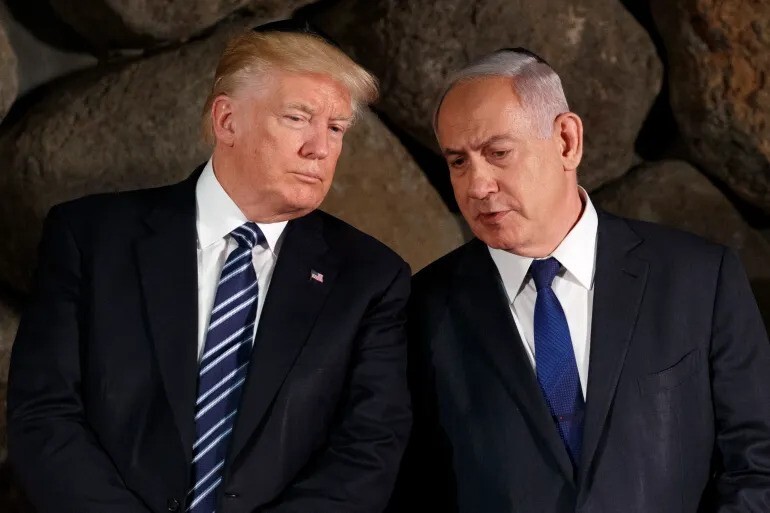Fragile Relationship Between Netanyahu and Trump
TEHRAN (Defapress) - According to a report by the Hebrew newspaper, Times of Israel, Benjamin Netanyahu's visit to Washington as the first foreign guest of Trump is seen as a boost to his fragile political position in Israel. This meeting occurs amid sensitive but fragile ceasefires in Gaza and Lebanon, pressured by the U.S. Despite positive media coverage, the relationship between Netanyahu and Trump remains strained due to past tensions, including Netanyahu's outreach to Biden after the 2020 U.S. election and his refusal to support Trump's claims of election fraud.

Both need a successful meeting. Trump, who considers himself the most pro-Israel U.S. president, reversed Biden's sanctions on extremist settlers and allowed heavy bomb shipments to Israel. Meanwhile, Netanyahu faces domestic pressures, including a corruption trial, demands from far-right coalition members to continue the war in Gaza, and calls from hostage families to prioritize their release.
Analysts like Daniel Kurtzer and Aaron David Miller believe Netanyahu's visit won't solve his problems but offers a chance to reaffirm his political relevance. Netanyahu is caught between maintaining his coalition's support and adhering to Trump's ceasefire demands. The far-right "Jewish Power" party threatens to collapse the government if Netanyahu doesn't resume the war after the ceasefire's first phase.
Netanyahu may seek Trump's approval to restart the war to prevent Hamas's political gains, but Trump has emphasized his desire to end conflicts. Trump's priority is reviving Saudi-Israeli normalization, which has become more complicated due to the Gaza war. Saudi Arabia's condition for a two-state solution may not align with Netanyahu's stance.
Disagreements over Iran could also arise. Netanyahu hopes for U.S. support against Iran's nuclear program, but Trump seems unlikely to pursue military action, preferring diplomatic solutions. Additionally, Netanyahu may discuss renewing the U.S.-Israel military aid agreement set to expire in 2028, but Trump may resist new commitments.
Netanyahu enters the meeting in a weak position, unable to leverage Congress as he once did. While he may return with positive imagery, he is unlikely to secure significant commitments. Both aim to avoid public confrontation, but the clear message is that the U.S., under Trump, will dictate the terms of the relationship, and Israel must not cross Trump's red lines.
The question remains whether Trump's return to the White House will benefit Netanyahu, a weakened yet cruel Prime Minister. The future will reveal the outcome.
